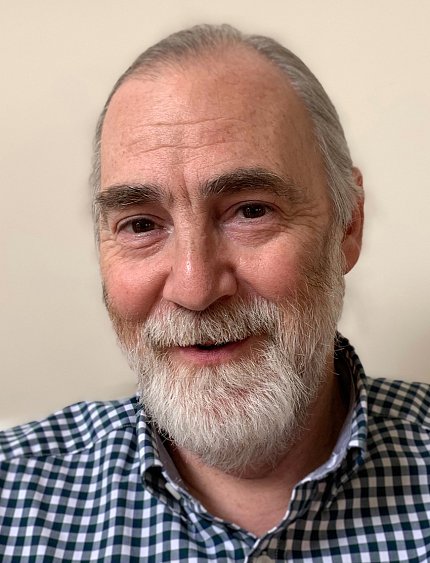Mayer Elected to Royal Society

In this fast-paced age of emails, texts and tweets, Dr. Mark Mayer, a scientist emeritus at the National Institute of Neurological Disorders and Stroke, was pleasantly surprised when he recently opened his mailbox and found a letter announcing his election as a fellow of the Royal Society of the United Kingdom.
“It feels both great and humbling to be recognized by one of the world’s most highly respected scientific societies,” said Mayer. “It is also an opportunity to recognize the hard work of many talented researchers who helped my lab serve the NIH mission.”
Mayer was cited for “his seminal work on the biophysics and structural biology of glutamate receptor ion channels.” He has spent more than 30 years studying these proteins at NIH.
“The NIH and the neuroscience community extends a heartfelt congratulations to Dr. Mayer. I cannot think of anyone more deserving of this high honor,” said Dr. Nina Schor, NINDS deputy director. “Dr. Mayer and his team have greatly shaped our understanding and appreciation for the role that glutamate receptors play in regulating excitatory neurotransmission throughout the nervous system.”
Mayer was born and raised in Great Britain, where in 1977 he earned a bachelor of science first-class honors degree from the University of Bristol.
After earning his doctorate in neuropharmacology at the University of London’s School of Pharmacy, he first came to NIH in 1981 as a Harkness fellow of the Commonwealth Fund. He began investigating ion channel biophysics in the lab of NICHD’s Dr. Phillip G. Nelson. In 1984, he returned to NIH to work as a postdoctoral fellow in Nelson’s lab. In 1987, he became an NICHD senior investigator.
“I am forever grateful to Dr. Nelson,” said Mayer. “He took a hands-off approach to running the laboratory, giving postdoctoral fellows an unusual degree of freedom to pursue their interests.”
The Royal Society noted important findings that Mayer’s lab made later in his career using new techniques including X-ray crystallography, cryo-EM and physical biochemistry.
In its letter, the society concluded that Mayer “has made groundbreaking observations that profoundly changed our view of receptor function and excitatory synaptic transmission in the brain.”—Chris Thomas
